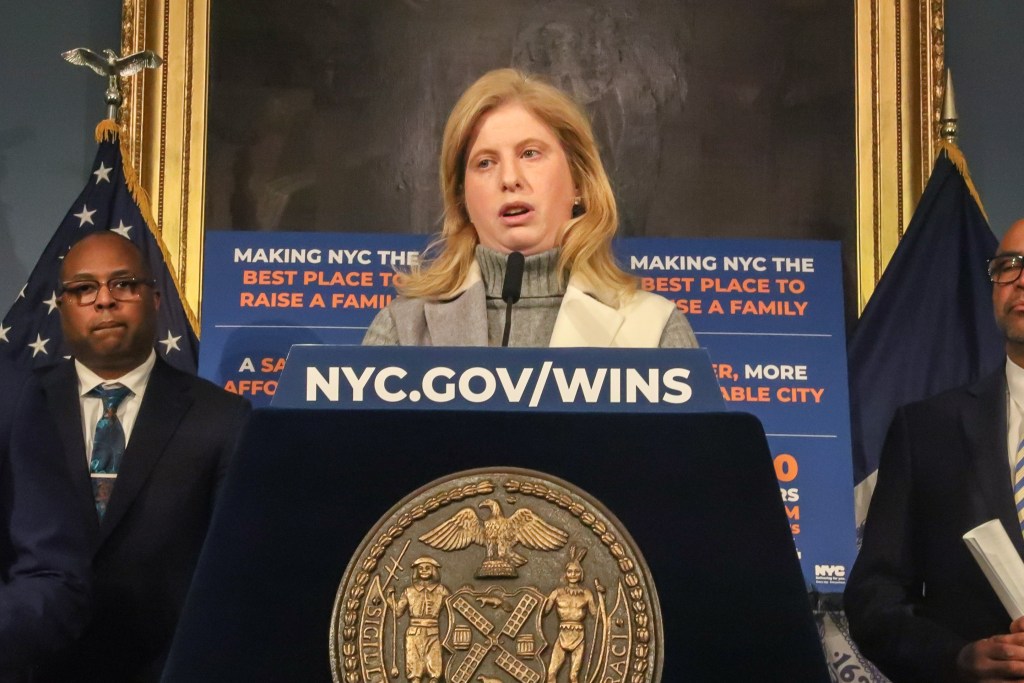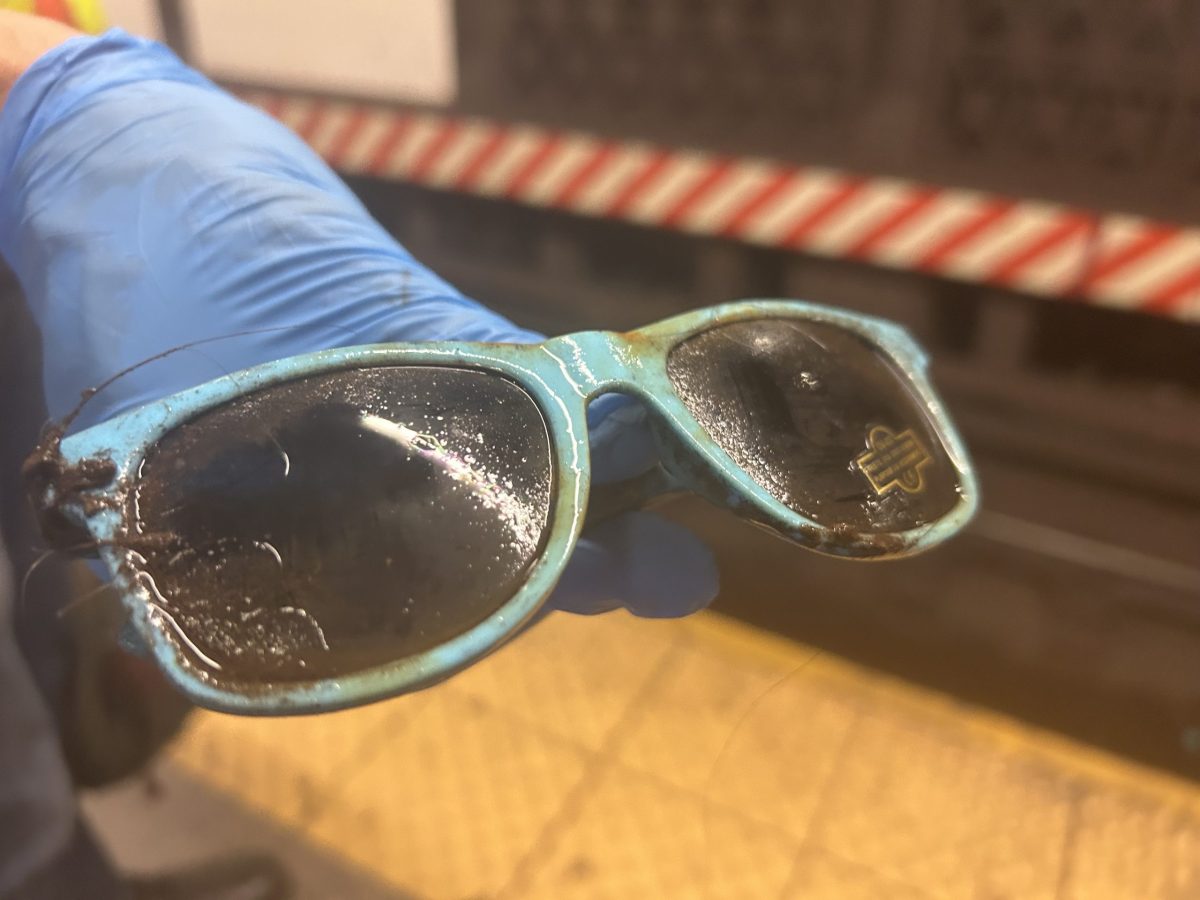A Manhattan Supreme Court judge on Tuesday granted 30 recently hired NYPD officers a reprieve from being fired, rejecting the department’s bid to end a temporary order blocking the terminations.
The NYPD told the officers last week they had 24 hours to resign or face termination because they had been improperly hired in 2023 or 2024, after being disqualified during the application process based on psychological evaluations or background checks. The department has faulted a single inspector, Terell Anderson, for the error, even as it says its investigation is ongoing.
The Police Benevolent Association (PBA) filed a lawsuit last Thursday in Manhattan Supreme Court and won a temporary restraining order against the terminations, which was extended Tuesday by Justice Phaedra Perry-Bond — who questioned why the city had been so hasty in trying to bounce the officers.
“These are human beings that are affected here,” she said.
In court papers, the NYPD said it was seeking to remove the officers after an investigation by the department’s Internal Affairs Bureau found in April that Anderson, the commanding officer of the Candidate Assessment Division (CAD), “unilaterally” cleared dozens of applicants to become officers despite their disqualification as “not psychologically fit and/or because of issues uncovered during their character background investigations.”
Department attorneys claimed in the filings that “but for the unauthorized unilateral actions of the then Commanding Officer of CAD, none would have been hired.”
Anderson, who has since been transferred to a housing unit, didn’t respond to a request for comment.
But PBA attorneys, a number of NYPD fraternal groups and those familiar with the hiring process say the inspector is being scapegoated for trying to improve a system that has long been unfair to recruits, particularly Black and brown candidates who are disqualified at higher rates than white candidates.
They say the notion that the strict, paramilitary style of the NYPD could be skirted by one “rogue” inspector is hard to believe.
“In our view this is a classic scapegoat scenario,” one of the attorneys for the PBA, Matthew Daly, told the judge Tuesday. “It’s just not plausible that nobody knew what was going on.”
The hiring kerfuffle comes as NYPD Commissioner Jessica Tisch is aiming at tightening accountability within the department following a series of scandals among top police officials — most notably former commissioner Edward Caban and former Chief of Department Jeffrey Maddrey, whose homes were raided by the FBI and who both resigned late last year.

She has called for tougher disciplinary measures for those who commit certain misconduct, announced a new vehicle pursuit policy aimed at restricting the use of the dangerous tactic and halted the department’s recent practice of dismissing disciplinary cases brought by the Civilian Complaint Review Board if they’re filed too close to an 18-month statute of limitations.
At the same time, Tisch elevated a close associate of Maddrey, then Chief of Patrol John Chell, to serve as the top uniformed official in the department despite a checkered disciplinary record. This includes pleading guilty to a departmental charge of federal tax evasion and a civil court jury’s determination that he intentionally shot an unarmed man in 2008. Chell has said the shooting was accidental.
Culturally Biased Cherry-Picking
While the targeting of the allegedly improper hires is in line with Tisch’s housecleaning initiatives, a number of supporters of Anderson say it’s misguided.
Eric Sanders, a civil rights attorney and former NYPD member who represents one of the 30 officers, said their situation stemmed directly from the NYPD’s haphazard hiring system.
“There are no validated standards, no consistency and no legal framework underpinning their disqualifications,” he told THE CITY. “You can’t enforce rules you don’t follow, and you can’t scapegoat one individual for exposing dysfunction the executive staff enabled for years.”
Patrick Gordon, president of the NYPD Guardians Association, which represents Black members of service, said his fraternal group has been arguing for decades that the NYPD’s evaluation process is culturally biased against people of color.
“This psychological process has been known for cherry-picking,” Gordon said at a press conference that preceded the court hearing. “We believe that what was cherry picked was not the cherries that the police department wanted this time, and that’s why it’s such an issue.”
Gordon said one of the reasons why Anderson was named commanding officer of the candidates’ unit was to address some of the claims of bias. He told THE CITY the commanding officer who served prior to Anderson also rejected recommendations for candidates to be disqualified, although less frequently.
Among the police officers challenging their terminations is Tyler Stradford, 34, who submitted an affidavit saying his disqualification notice from the NYPD arrived in October 2016, when he was working as a detective investigator in the office of the Brooklyn District Attorney.
He says he then worked for the Brooklyn DA’s office for five years after completing a background check, a psychological evaluation and a drug screening.
In 2022, according to Stratford’s affidavit, he was hired as an investigator for the city’s Department of Corrections. On April 11, 2024, he says he was contacted by someone from the NYPD about whether he was still interested in joining the police force.
Four days later, his affidavits says, Stratford sat down with “the inspector” and spoke about the reasons he had been disqualified. Stratford says he soon got the green light to join the police academy, graduated in January, and was assigned to the 46 Precinct in The Bronx — where he says he’s made 20 arrests.
“My father retired as a First grade Homicide detective after serving the NYPD for 38 years and was the inspiration for me to pursue a career as an NYPD police officer,” he wrote in his affidavit. “I saw over my lifetime how he committed his life to getting justice for victims as well as the brotherhood that was formed, especially in times of vulnerability.”
Recruits Had an Opportunity
For its part, the PBA says the controversy over the department’s hiring policies aren’t the fault of the 30 officers, who shouldn’t be punished after being told they earned the right to join the NYPD.
The union, which represents about 24,000 uniformed officers, says that, at minimum, the officers should maintain the right to appeal the NYPD’s decision if it’s allowed to proceed.
“The NYPD is terminating these officers due to no fault of their own,” the union attorneys said in court filings. “Worse yet, the NYPD is doing so with no notice and with no procedural protections.”
The NYPD and city attorneys responded that the recruits had an opportunity to challenge their disqualifications when they were first notified, in some cases years ago. They said only six of the 30 candidates appealed, and that none of the appeals were granted.
The department submitted summaries to the judge of the negative psychological or character findings for a number of the 30 officers to offer examples of why they shouldn’t have been hired.
Without naming the officers, they said one had a prior history of paying prostitutes for sexual favors, another acknowledged taking LSD and marijuana to cope with stress and a third boasted in a vengeful way about the conflicts she’s had with people, which the department viewed as a “lack of insight into her social deficits.”
City attorney Marina Sukonnik told the judge the NYPD’s actions against the officers were intended to protect the public.






